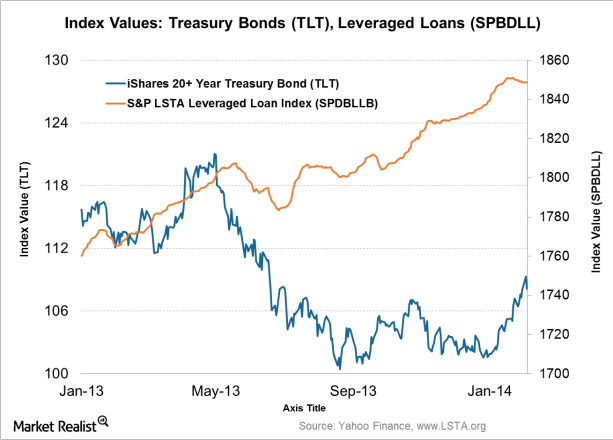Why Do Bond Prices Go Down When Interest Rates Rise
Post on: 22 Май, 2015 No Comment

Example Of Bond Prices And Interest Rates
When interest rates go up, bond prices go down. SaulGravy/GettyImages
You may have heard that bond prices rise when interest rates fall, and bond prices fall when interest rates rise. Why is this? A dollars and cents example offers the best explanation of the relationship between bond prices and interest rates .
Example Of How And Why Bond Prices Change When Interest Rates Rise
Case Study Facts
- You buy a bond for $1,000.
- It matures in four years (at which time you get back your $1,000 investment).
- Its coupon rate (interest rate) is 4%, so it pays 4% a year, or $40 a year.
Interest Rates Rise
Now suppose one year later interest rates rise to 5% and you decide to sell your bond because you need that $1,000. When you enter an order to sell, the order goes to the market, and potential buyers now compare your bond to other bonds and offer you a price. Of course this all happens electronically in an instant.
Since interest rates went up, a newly issued $1,000 bond which matures in three years (the time left before your bond matures) is paying 5% interest or $50 a year. That means your bond must go through a market value adjustment to be fairly priced when compared to new issues. Let’s take a look at how this market adjustment works.
- If an investor buys your bond for $1,000 they would receive $40 x 3, or $120 in interest over the remaining three years.
- If an investor buys a new bond for $1,000 they would receive $50 x 3, or $150 in interest over the remaining three years.
- There is no incentive to buy your bond at its face value of $1,000 since the investor would receive less interest than the newly issued bonds, thus the market adjusts the price of your bond to make it “equivalent.”
- In this set of circumstances you may receive an offer of about $970 for your bond. (When a bond sells for less than its maturity value it is said to trade at a discount.)
- An investor who bought your bond for $970 would now receive the $120 of interest, plus the additional $30 of principal when the bond matures.
- Because they were able to pay less for the bond, they would receive the same dollar amount of profit, over the same time frame, as if they bought a newly issued bond paying a higher interest rate .
Bond Prices, Interest Rates, and Duration
There is a formula you can use to estimate the effect a change in interest rates will have on a bond or bond fund. In the white paper The 4 Percent Rule is Not Safe in a Low Yield World. authors Michael Finke, Wade Pfau, and David Blanchett state,
One method to approximate the impact of a change in interest rates on the price of bonds is to multiply the bond’s duration by the change in interest rates times negative one. For example, if interest rates increase by 2%, a bond with a duration of 5 years (the approximate current duration of the Barclays Aggregate Bond index) would decrease in value by 10%. The impact on bonds with longer durations (e.g. 15 years) would obviously be even more extreme.
To use this formula you must understand and look up a bond’s duration. which in simplistic terms is a weighted average measuring the length of time the bond will pay out. The higher the duration, the more sensitive the bond or bond fund will be to changes in interest rates.
Other Factors That Influence Bond Prices And Interest Rates
The example I provided is a simplified example. The final price of a bond depends on the credit quality, type of bond. maturity, and frequency of interest payments. In general, bonds with similar terms will adjust to interest rates in a like manner.
What Type Of Bonds Fare Well In A Rising Interest Rate Environment ?
There are two types of bonds which may not go down when interest rates rise. Both floating rate bonds funds and inflation-adjusted bond funds will fare well in a rising interest rate environment, because the interest payments on these types of bonds will adjust.
In addition, if you own individual bonds rather than bond funds and plan to hold your bonds to maturity, then you will not need to be concerned about changes in interest rates as you have no plans to sell your bond so it’s interim price is irrelevant to you.














